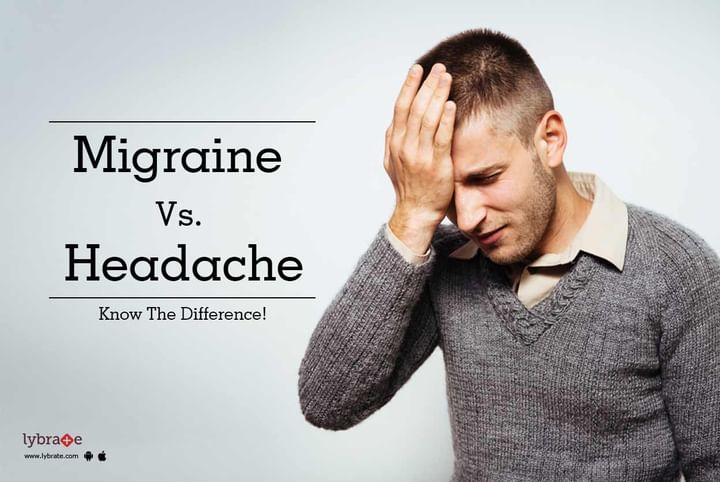Migraine Vs. Headache - Know The Difference!
'Tension type headache' is the most common type of headache experienced by most of us in our life.
How to differentiate between a Migraine and Tension-type Headache?
When you feel pain or pressure in your head, it may become difficult for you to assess whether you are experiencing a tension-type headache or a migraine. Let's understand how different they are from each other.
A typical tension-type headache usually affects both sides of your head and varies from a mild to moderate pain. It can last from 30 minutes to up to a period of one week.
Some specific areas which get affected by a tension-type headache are:
- Temples
- Forehead
- Back of your neck
Factors that trigger this headache type are a muscle strain, stress or anxiety.
A migraine, on the other hand, is also a type of a tension-type headache which results in an acute throbbing sensation in one part of your head. Usually, migraine headaches are highly painful. Migraine pain makes it difficult for a person to carry out his/her daily tasks. Symptoms or signs associated with migraine attacks are:
- Vomiting
- Nausea
- Sensitivity to sound or light
- Pain in the temples
- Temporary loss of vision
- Pain behind your ear or eye
What are the common causes of a migraine?
- Hormonal imbalances in women - fluctuations in oestrogen, especially during menopause or pregnancy seem to trigger a migraine
- Drinks like wine and extremely caffeinated beverages
- Foods such as salty foods, aged cheese as well as processed foods can trigger the migraine attack.
- Medications - vasodilators such as nitroglycerine and oral contraceptives can intensify migraine pain.
How to treat a tension-type headache?
Fortunately, you can get rid of stress-induced headaches through over-the-counter treatments, which include:
How to treat a migraine?
If you experience migraine attacks less frequently, these medicines may give you quick relief:
- Triptans, such as rizatriptan (Maxalt) or almotriptan (Axert)
- Antinausea medicines, such as chlorpromazine (Thorazine), promethazine (Phenergan) or prochlorperazine (Compazine)
- Non-steroidal anti-inflammatory drugs (NSAIDs), such as acetaminophen, naproxen sodium, aspirin or ibuprofen
Some preventive tips:
- Make changes in your diet such as avoid such foods, including caffeine and alcohol which are believed to trigger tension-type headaches.
- You can also try muscle relaxation exercises, yoga or meditation to ease the migraine attack.
In case you have a concern or query you can always consult an expert & get answers to your questions!



+1.svg)
